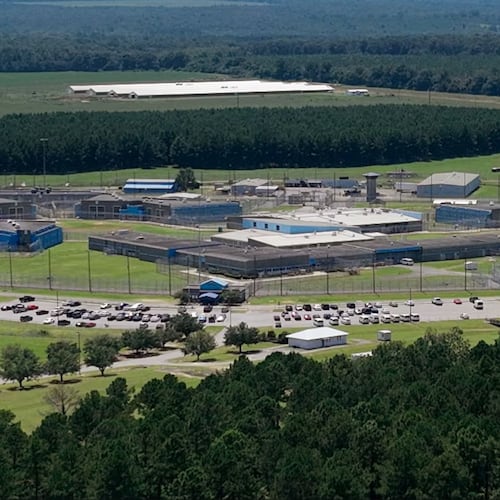Georgia's economy lost 2,100 jobs in September, with weaker-than-usual hiring in a number of sectors, according to a report Thursday from the state's labor department.
Although there were no signs of an economy slamming on the brakes, the state saw job declines in blue-collar sectors like hospitality and retail, as well as white-collar corporate jobs. Even construction, which had been expanding at a breakneck pace for years, dipped during the month.
During the five previous years, the economy in September added an average of 5,700 jobs. This was only the second time since the recession that Georgia payrolls have shed jobs during the month, but the other time – 2017 – the loss was greater.
While monthly data is notoriously erratic, economists have been watching for signs that the now-record-long economic expansion is running out of steam. And if the weakness continues into a second month – especially if there is a decline in sectors burdened by the U.S. trade war with China – that would be worrisome.
Yet thus far, very few economists say a downturn is underway or even imminent.
Georgia’s unemployment rate, which is calculated from a survey that is separate from the jobs data, even showed a slight improvement, dipping from 3.6% in August to 3.5% last month. That is evidence that most people who are seeking a job can find one.
Georgia was hit harder than the nation as a whole by the housing crash and recession, and the state’s jobless rate for years was significantly higher than the U.S. rate. Last month, they were both 3.5%.
And the number of new claims for unemployment insurance – seen as a sign of layoffs – was just 2% higher than in the same month a year ago.
Overall, the outlook is good. Georgia has added 77,400 during the past year. And the state typically sees a surge of hiring in the final three months of the year as logistics and retail companies bulk up to handle the demands of holiday business.
While the numbers likely won't be what they once were, because of the increase in online shopping, hiring by traditional retailers is still substantial. During the past five years, roughly one-third of the jobs added were created during the year's final three months, according to the Bureau of Labor Statistics.
Target, for example, said it will add 125,000 workers in stores and 8,000 more in distribution centers, said Andrew Challenger, vice president of the outplacement and coaching firm Challenger, Gray & Christmas.
About 80,000 people nationally will be hired during the holiday season to work at Macy’s and Bloomingdale’s stores, including 1,300 workers – full and part-time – in Georgia, said Carolyn Sisson, company spokeswoman.
Thousands are hired to full-time after the holidays, she said.
And to deliver all those packages that will be ordered online in the next few months, Sandy Springs-based UPS has said it will add 100,000 jobs.
In addition to retail, 180 jobs will be added to the state's economy when Ball Corp. builds a $200 million factory in Rome next year. The company, which has 150 employees on an adjacent site, will be making aluminum cups.
And Parsons Corp., a cybersecurity tech company, will add 80 jobs at the Georgia Cyber Center in Augusta.
The economy is always churning. In good times, more jobs are added than lost. In bad times, it’s the reverse.
This week’s downside included news that 240 positions will be eliminated in Tucker when Brill Inc., a subsidiary of a CSM Bakery Solutions, closes its manufacturing plant later this year.
And in a filing with the state Department of Labor, Gulfstream Aerospace said it is laying off 362 workers at its plant in Savannah.
Georgia unemployment rates, September
Highest: 10.5% (2010)
Lowest: 3.4% (2000)
Current: 3.5% (2019)
Sources: Georgia Department of Labor, U.S. Bureau of Labor Statistics
September job change in Georgia
2011: 7,400
2012: 3,400
2013: 9,800
2014: 5,800
2015: 6,500
2016: 17,700
2017: -6,900
2018: 5,300
2019: -2,100
Sources: Georgia Department of Labor, U.S. Bureau of Labor Statistics
Unemployment rate, Sept. 2019
Georgia: 3.5%
United States: 3.5%
Unemployment rate, Sept. 2009
Georgia: 10.4%
United States: 9.8%
Source: St. Louis Federal Reserve, Bureau of Labor Statistics
Year’s final three months as share of hiring
2014: 25.6%
2015: 35.2%
2016: 21.4%
2017: 48.3%
2018: 31.1%
Source: Bureau of Labor Statistics
About the Author
Keep Reading
The Latest
Featured




